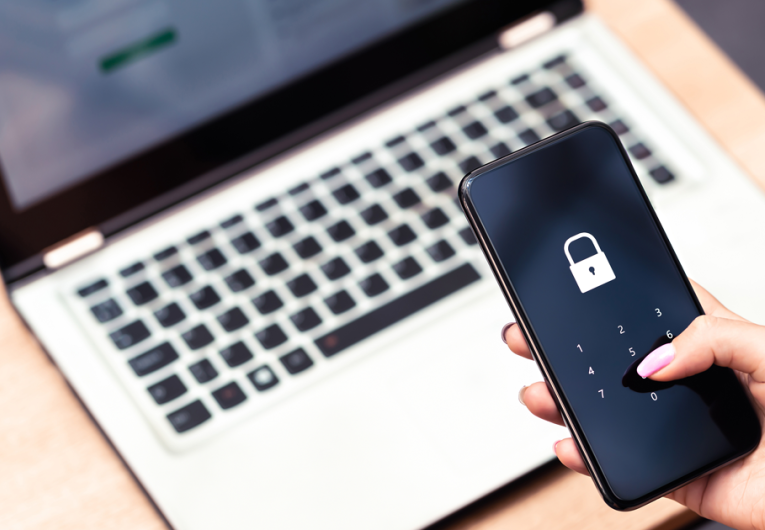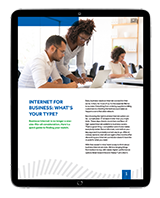
Why is Multi-Factor Authentication Important?
Even the strongest passwords can be compromised if they’re overheard, spied over the user’s shoulder at a Wi-Fi coffee shop, or jotted down on a post-it note and absentmindedly left somewhere.
That’s why multi-factor authentication (MFA) and passwords should go hand-in-hand, providing users with a powerful line of defense against cyber threats.
But what exactly is MFA, and how can you enjoy its benefits?
A Brief Definition
The purpose of MFA is to enhance security by adding an extra layer of protection beyond just a username and password, making it more difficult for unauthorized individuals to access sensitive information or systems.
MFA has evolved as a security concept in response to the growing need for enhanced digital defenses. It’s a method of confirming a user's identity by using multiple verification methods that include:
Something You Know
This is information that only you would know. Examples include passwords, personal identification numbers (PINs), and security questions, such as "What is your mother's maiden name?"
Something You Have
This involves something physical or digital that you possess, such as a hardware token, a smart card, or an app on your smartphone.
Something You Are
This factor relies on a unique biological or behavioral characteristic only you possess, such as a fingerprint, voice pattern, or retina.
Why MFA is Important
There are several reasons it’s important to consider MFA as part of your information security strategy:
Enhanced Security
MFA significantly increases the difficulty for unauthorized users to gain access because even if one factor is compromised (e.g., a stolen password), the other factor(s) remains intact.
Mitigating Password Vulnerabilities
Passwords alone can be weak due to user habits or vulnerabilities. MFA adds a layer of protection that reduces the risks associated with password-only authentication.
Compliance Requirements
Many regulations and standards, such as GDPR, HIPAA, and PCI DSS, require organizations to implement MFA to safeguard sensitive data.
Protecting Personal Information
MFA is crucial for personal accounts and online services to protect users from identity theft, unauthorized access to email or social media, and financial fraud.
Business and Network Security
In the corporate world, MFA is essential to secure access to critical systems, networks, and data, protecting against data breaches and cyberattacks.
MFA Implementation Checklist
The following guidelines will help you incorporate MFA into your business's overall information security plan.
• Assess your needs and risks by identifying the systems, applications, and data that need MFA protection, then choose the methods of MFA you will use.
• Choose an MFA provider, such as Google Authenticator, Microsoft Authenticator, Duo, and Authy, among others.
• Integrate the chosen MFA solution with your existing systems, applications, and services. Most MFA solutions offer assistance with integration.
• Establish policies that govern when and where MFA is required. For example, you may require MFA for remote access or for certain high-privilege actions.
• Enroll employees in the MFA system, which typically involves registering their additional authentication methods (e.g., setting up the mobile app or hardware token).
• Train your employees on how to use MFA and the reasons behind its implementation. Communicate the changes and the importance of MFA to all users.
• Test the MFA system thoroughly to ensure it works as expected without causing disruptions.
Then, gradually roll it out before implementing it organization-wide.
• Continuously monitor the MFA system for any suspicious activities or issues. Develop a plan for handling MFA-related incidents, such as lost tokens or forgotten authentication methods.
While MFA significantly enhances security, remember that threats constantly evolve. As such, it pays to consider MFA part of a broader security strategy that includes regular security assessments, mitigation upgrades, and employee training.
At Sparklight, the security of our Business Internet clients is our highest priority, which is why our Wi-Fi solutions offer the latest security enhancements. We welcome the opportunity to discuss how we protect your connections, day in and day out. Contact us today to learn more.
The trends, insights, and solutions you need to grow your business.
By signing up, you’re subscribing to our monthly email newsletter, The
Wire. You may unsubscribe at any time.
Your information stays safe with us. Learn more about our privacy
policy.











![[#MSP_NAME#] Logo](/themes/sparklight_business/images/transition-logos/migration-banner-logo-[#MSP_CD#].png)
